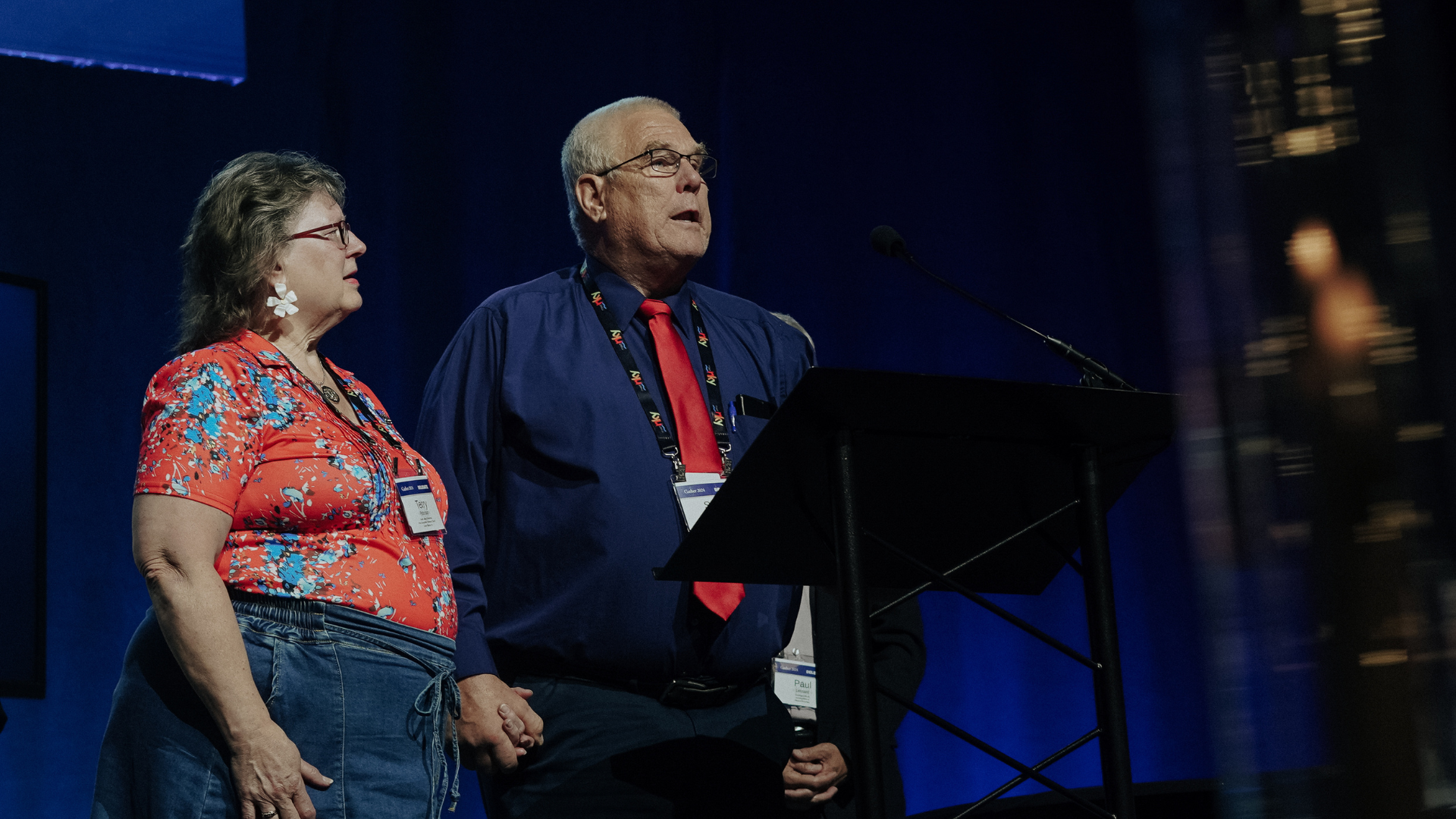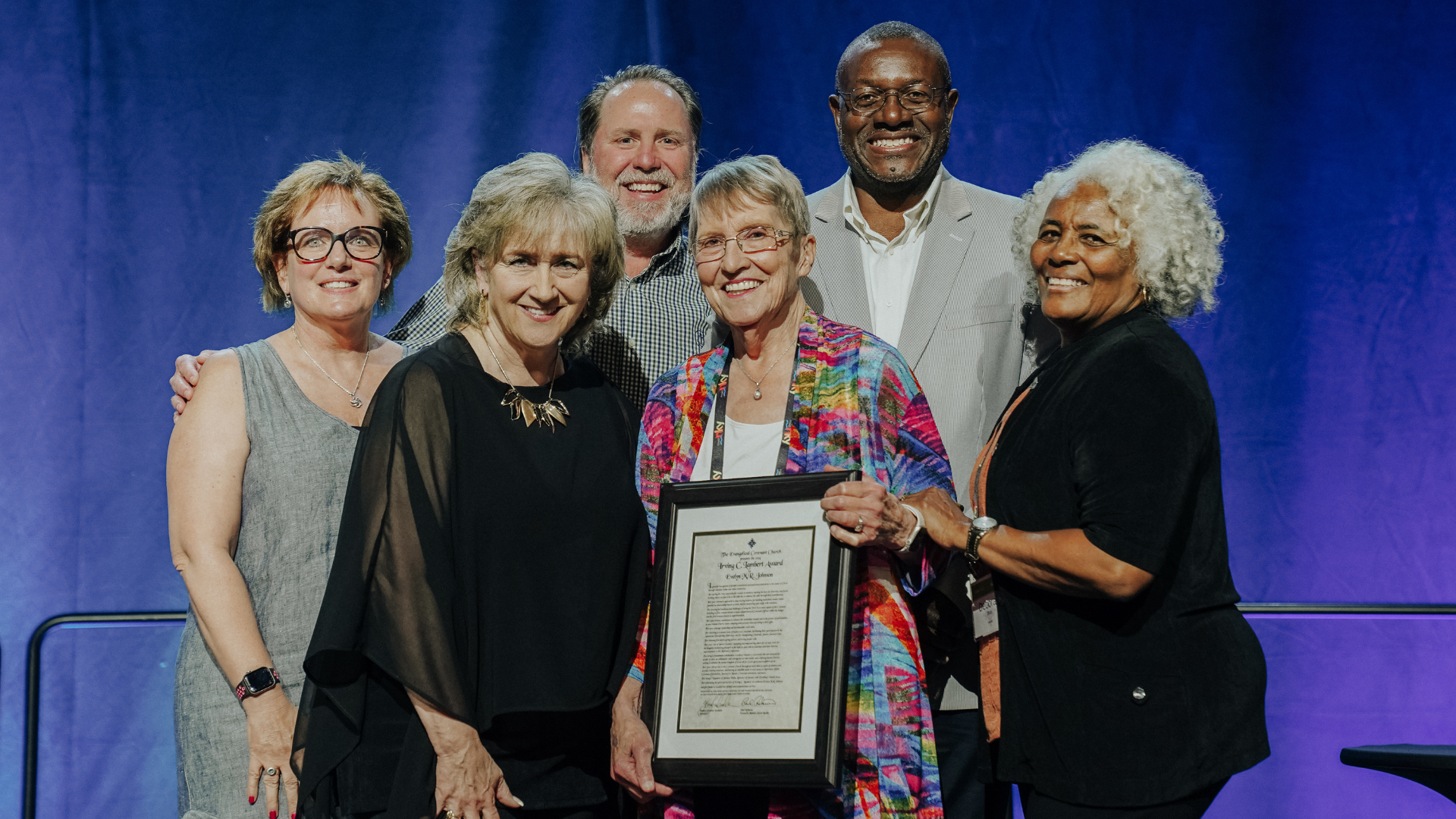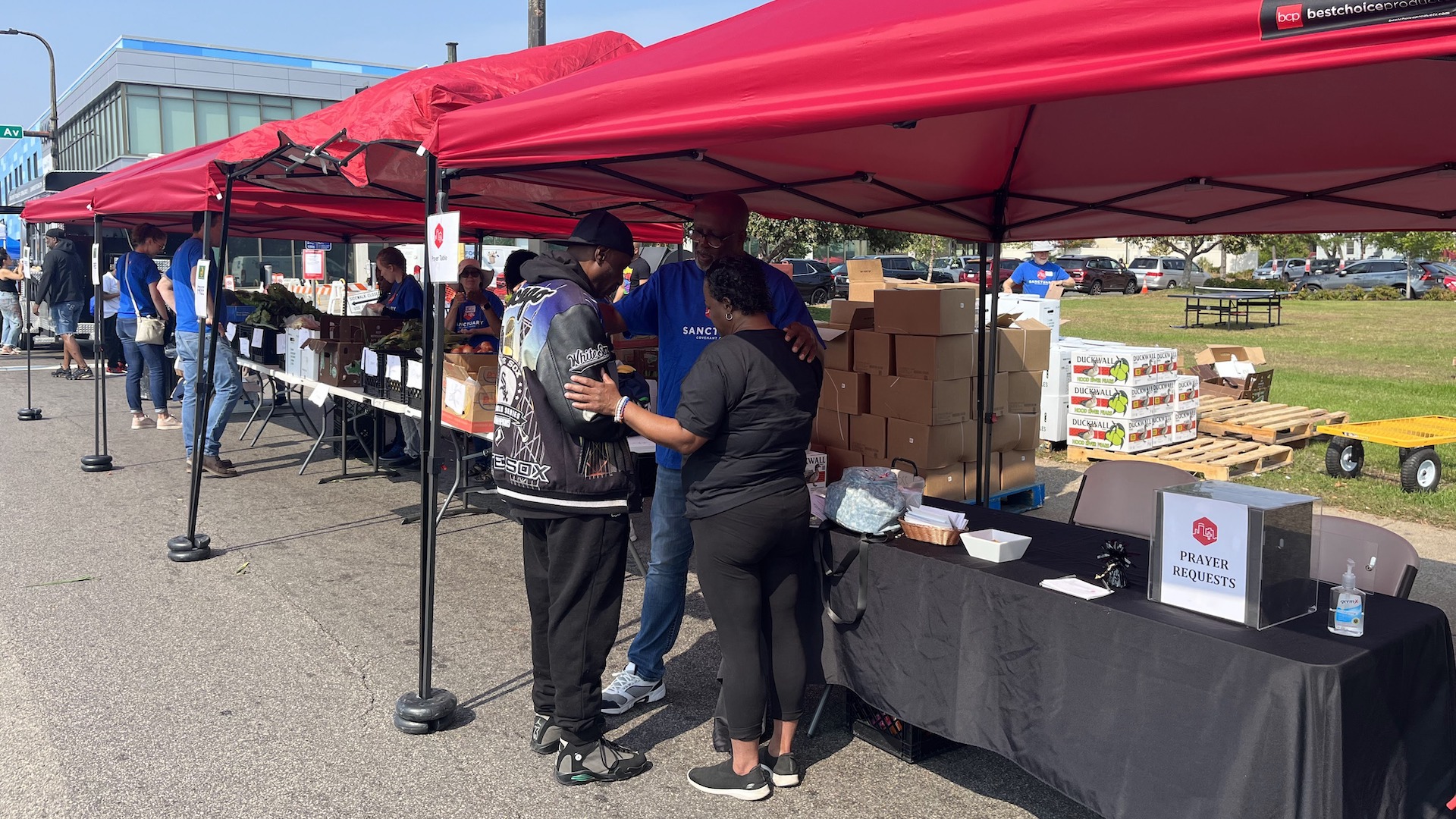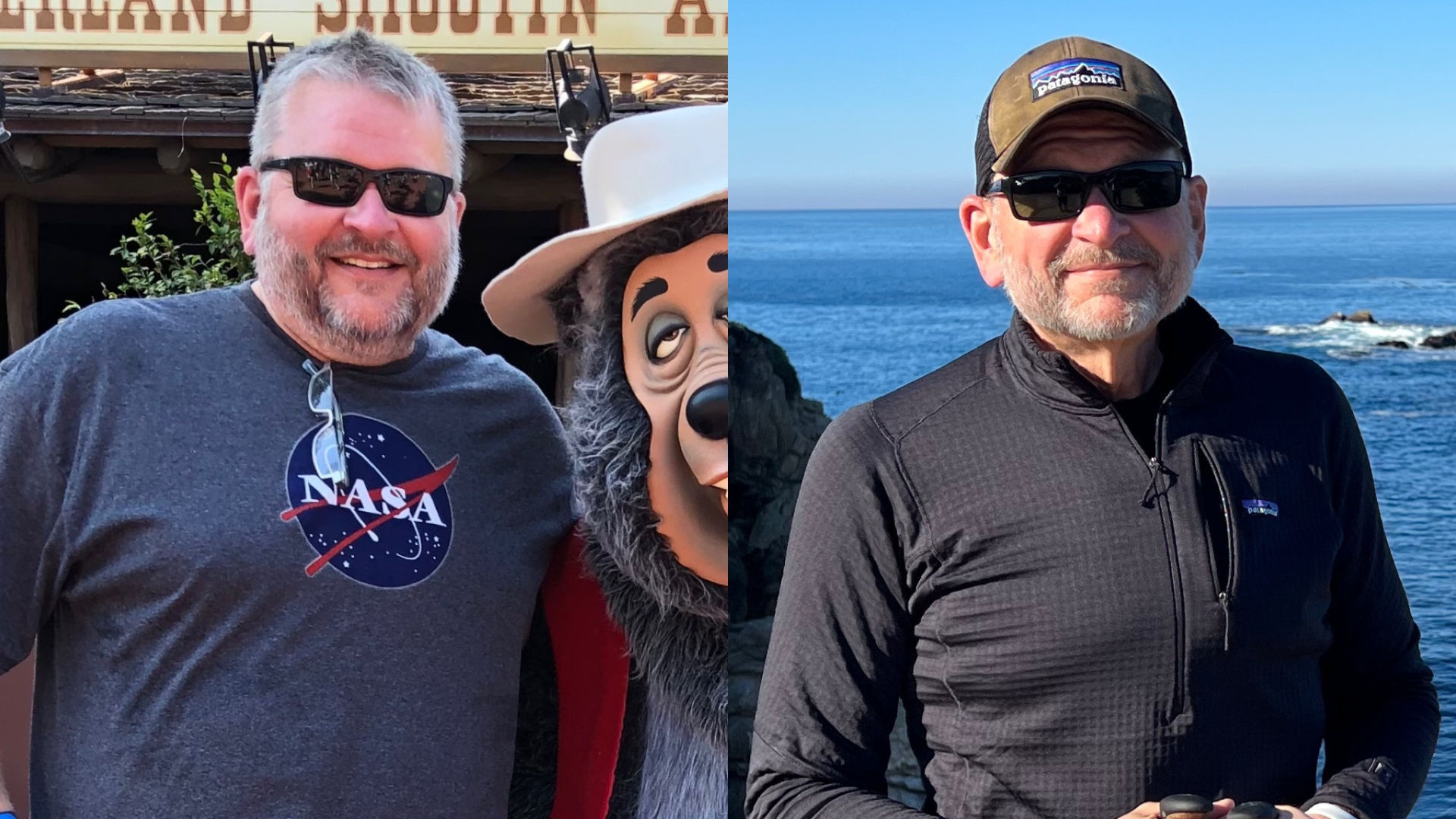Beloved Community
A Sacramental Gift Behind Prison Walls
by Celeste Cecchi | April 29, 2020
When I was invited to attend a worship service within the walls of Stateville Correctional Center outside of Chicago, I expected to be encouraged in my faith as I listened to testimonies of men who were incarcerated. I expected to be challenged by their teaching and led in worship. What took me by surprise was the sacred community I experienced, found only in the freedom of the body of Christ.
About two dozen worshipers gathered that day, four of us visitors. Rather than plush pews, we sat on plastic chairs in a large circle around the perimeter of an otherwise empty cinderblock room. The old windows were not sealed sufficiently enough to keep out the midwinter cold. But I didn’t take note of that until later—perhaps because nothing about that room felt empty or cold.
Prior to the service, we had the chance to meet and mingle for about a half hour. Johnny, one of the Stateville residents, and I had an immediate connection: within minutes of meeting, we discovered we were both parents navigating preteen years as best we could. We talked about our 13-year-old sons and the frustrating, often misunderstood emotions of tweens (and their parents). We wondered together how we might teach our sons to be less obsessed with themselves in this age of social media and think more of others.
Then one worshiper asked the group how everyone’s week had been. We began to share how we were doing––how we were really doing––spiritually, mentally, physically, emotionally. One by one, we began to unpack the battles and victories of our week. One man had recently finished a paper he’d been struggling to write for weeks, and we celebrated with him. Another shared a conviction he was feeling to engage with a resident he’d been avoiding, and we responded with encouragement and prayer. We rejoiced with the man who had finally received the medication he needed in order to sleep.
We prayed for one man who was longing to find purpose. And I, who had just lost my grandmother, was consoled by a body of believers who had been strangers earlier that morning.
We who live outside of prison walls work hard
to protect the secrets of our hearts from being exposed.
The vulnerability and support offered in that space was striking. I witnessed the paradoxical freedom shared among incarcerated men, who are often defined by society according to the worst thing they have ever done. They embodied a freedom in Christ I often do not take hold of myself. The residents I met at Stateville that day were free to be real with each other because they had nothing left to hide.
We who live outside of prison walls work hard to protect the secrets of our hearts from being exposed. We hide our own brokenness behind prayer requests for an alcoholic uncle or an abusive neighbor. We bury ourselves in expectations of what it looks like to be a godly leader. We are bound by our own pretenses.
In his first letter to the church in Corinth, Paul addresses the brokenness of the church’s community. He warns against
misunderstanding and misusing the communion table with the words “the Lord Jesus on the night when he was betrayed took a loaf of bread and…broke it” (1 Corinthians 11:23-24). Christ offered himself at the very core of brokenness in his own community—on the night he was betrayed by one of his own. Too often in my own broken place I forget the sacrifice Christ offered in that broken place.
After fellowship, prayer, and Bible study that day at Stateville, we prepared to share communion together. A few of the men left the room to gather the elements. They returned with bags of peanuts and bottled water—the only items available to them for communion. They started walking around the circle. Each one dipped a peanut in the water and offered a blessing over the elements to each recipient.
Experiencing sacred community in that place offered me a new perspective of communion. The sacramental gift I held in my hand, the peanut dipped in water, was an invitation into authentic community, stripped of pretenses, expectations, brokenness, and secrets. It was an invitation to experience true freedom in Christ—the same freedom I saw in the residents I worshiped with at Stateville.
Celeste Cecchi is the Evangelical Covenant Church communications project manager












